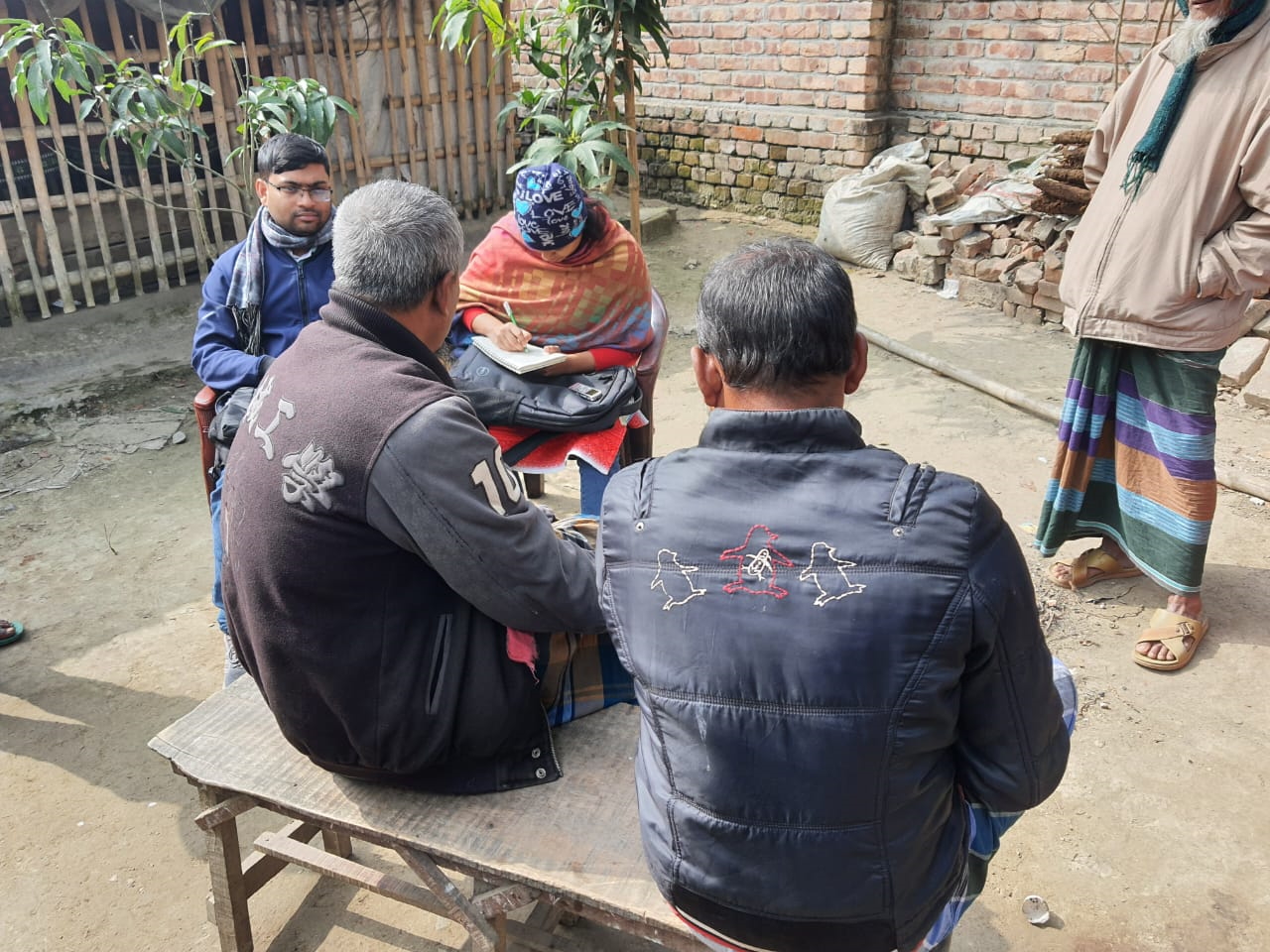It is by now a truism that the Covid-19 pandemic amplified already-existing inequities of all kinds, whether in its immediate impacts on individual health, or in the secondary impacts of pandemic-related disruptions.
Those who were poor got poorer. Those who were vulnerable to food insecurity got more food insecure. Those who were already marginalised and stigmatised by existing public health services confronted further marginalisation and stigmatisation. Those who were at risk of being pulled out of school to be married off, were put at greater risk. Those whose jobs put them at risk, whose jobs (informal or otherwise) were precarious and unprotected, experienced greater risks and less protections. These immediate effects have been witnessed, documented and increasingly evidenced as the data collected over these last two chaotic years makes its way into the public domain.
Do we know enough to ‘build forward better’ on a strong foundation of inclusively rigorous evidence? Not yet.
The Covid-19 Learning, Evidence and Research Programme (CLEAR) is an FCDO-funded initiative to generate knowledge to inform Bangladesh’s response to the unfolding shocks of the Covid-19, and to help build resilience in the face of future public health emergencies. This programme of learning takes a co-production approach that brings together policy makers, academic research institutions and development partners to identify priorities where the existing evidence is insufficient to indicate the path forward. Specifically CLEAR targeted the areas of education, social protection, labour rights, violence against women, health, and migration for scoping papers and related learning events that could begin to surface what happened in these sectors and to these populations during the Covid-19 pandemic, why these impacts occurred and what kinds of approaches are needed to effectively respond to the inequities that the pandemic deepened.
On 31 March 2022, CLEAR convened a workshop with participants from the government, NGOs and health research institutions to discuss the preliminary results of a scoping review on Covid-19 impacts to Sexual and Reproductive Health and Rights (SRHR) and Maternal, Neonatal and Child Health (MNCH) in Bangladesh. This scoping review pulled from the available peer-reviewed literature, DHS and other Health Information Systems data, government reports and grey literature to present an overarching picture of what is known, what is not yet known, and which knowledge gaps should be prioritised in this next phase of pandemic recovery. What we now know is that SRHR and MNCH services and health-seeking behaviours were hugely disrupted by the impacts of the Covid-19 pandemic, particularly during the first period of national lockdown in Bangladesh in 2020. We also know that the Covid-19 pandemic most negatively impacted those already marginalised and vulnerable within Bangladeshi society. This included the indirect effects of economic shocks and of lockdowns that led to increases in intimate partner violence and other forms of gender-based violence, increases in child marriage (and relatedly young girls dropping out of school), and adverse child and infant health outcomes related to food insecurity, disrupted child immunization campaigns, and disruptions to pre/post-natal services.
What don’t we know? This CLEAR initiative identified the following research priorities to address the substantial impacts of Covid-19 on already existing SRHR and MNCH services, but also to help inform the development of future SRHR and MNCH programmes that will be better prepared to respond to future shocks. The review ‘points towards the need to prioritise research aimed at generating more evidence around pandemic impacts to health service quality, sexual health services and outcomes, impacts on marginalised groups, and on unpacking the role of the private health sector and community-based responses in the pandemic.’ What is needed now are:
- Intersectional analyses using both quantitative and qualitative methods to better understand the complex impacts of the Covid-19 pandemic both in the short and long term.
- A deeper understanding of the interrelationship between private and public health system actors particularly as it relates to coordinated response and data-sharing in times of public health crisis, as well as on practices of task-shifting and their secondary impacts on SRHR and MNCH services.
- Research on how mechanisms for greater accountability and governance of health service providers can be achieved (public, private-for-profit, private-not-for-profit), including the identification of opportunities to enable more robust forms of social accountability at local level.
- Substantial investment in research on the impacts to SRHR during the pandemic, but also now and in future, as SRHR has lacked attention and prioritisation, resulting in insufficient evidence translated into policy action, especially for marginalised and vulnerable groups.
For CLEAR the next step is to commission robust and inclusively rigorous research to begin to address these gaps in knowledge identified through this scoping exercise and workshop. As one workshop participant explained, ‘we don’t yet fully know the impacts’ of the Covid-19 pandemic because the pandemic is not ‘over’ in a conventional sense. Health Systems accountability and governance initiatives introduced before the pandemic were put on hold. Services not deemed ‘essential’ were put on hold. Social safety nets maintained in part by schools, by health services, by informal self-help groups were all put on hold. What CLEAR hopes is that by training an inquiring lens on these processes, we might better understand what actions mitigated the worst impacts of the pandemic and what groups or institutions need to be supported and strengthened so that future shock events harm fewer people and at a lesser scale.
Further reading
- CLEAR Research Brief: Impacts of Covid-19 on SRHR and MNCH in Bangladesh
- Scoping paper: Hrynick, T.; Barasa, V. and Abbas, S. (2022) ‘SRHR and MNCH in Bangladesh: A Scoping Review on the Impacts of the Covid-19 Pandemic’, CLEAR Scoping Paper, Brighton: Institute of Development Studies, DOI: 10.19088/IDS.2022.028
